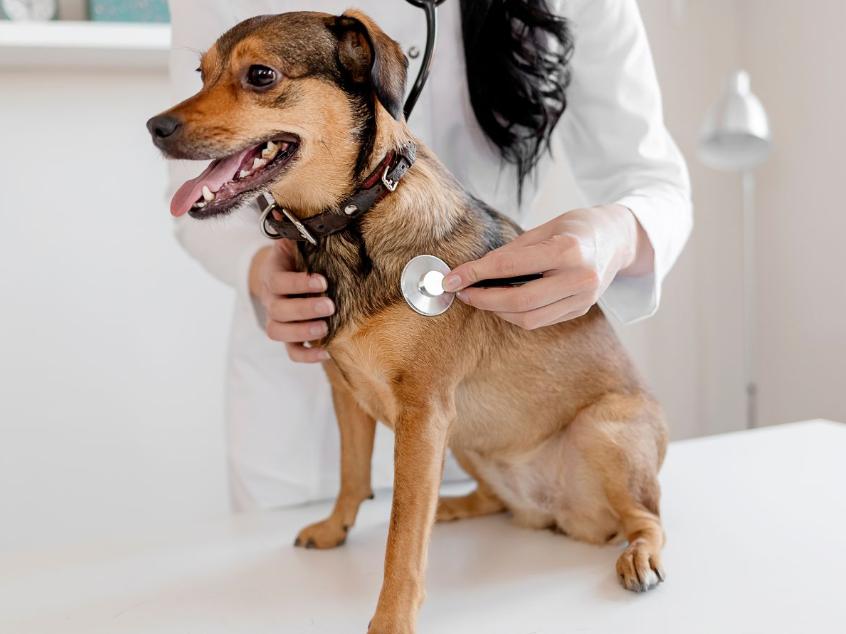Caring for your pet goes beyond feeding them and providing shelter. Ensuring they receive proper wellness care is crucial to their long-term health and happiness. By following the right strategies, you can help your pet lead a healthy and fulfilling life. Animal wellness care includes preventive measures, regular checkups, and maintaining overall health. Trusted animal medical centers like Winters Chapel provide comprehensive wellness services that keep pets in great shape. In this blog post, we will cover the top strategies for effective animal wellness care.
1. Regular Veterinary Visits
One of the most important strategies for ensuring your pet’s wellness is scheduling regular veterinary visits. Routine checkups allow veterinarians to assess your pet’s overall health, detect any early signs of illness, and recommend preventive treatments. During these visits, your vet may perform physical exams, check weight and body condition, and update vaccinations.
Early detection of health problems can prevent complications and ensure your pet stays healthy. Regular visits also provide an opportunity for you to discuss any concerns you might have about your pet’s behavior or diet.
2. Preventive Health Care
Preventive care is key to keeping your pet healthy. This includes vaccinations, flea and tick prevention, heartworm prevention, and regular deworming. By taking these steps, you can protect your pet from diseases that could seriously affect their health. Preventive care also includes keeping up with dental cleanings, which help maintain oral health and prevent issues like gum disease and tooth decay.
Working with your vet to create a preventive care plan ensures that your pet is protected from common ailments and parasites that could harm them.
3. Proper Nutrition
Feeding your pet a balanced and nutritious diet is crucial for their overall wellness. The type of food your pet needs will vary depending on their age, breed, and specific health requirements. A proper diet provides the necessary vitamins, minerals, and nutrients to keep your pet healthy and active. It also helps maintain a healthy weight, reducing the risk of obesity and related conditions such as diabetes and joint problems.
If you’re unsure about your pet’s nutritional needs, consult your veterinarian for guidance. They can help you select the best food and portion sizes to keep your pet in top shape.
4. Exercise and Mental Stimulation
Regular exercise is vital to your pet’s wellness, especially for dogs and cats. Exercise keeps your pet physically fit, reduces the risk of obesity, and strengthens muscles and joints. It also provides mental stimulation, which is important for reducing anxiety, boredom, and destructive behavior.
Make sure your pet gets enough physical activity through daily walks, playtime, and interactive toys. Mental stimulation, like puzzle toys or training exercises, also helps improve your pet’s cognitive function and overall happiness.
5. Dental Care
Good dental hygiene is often overlooked, but it is a key part of animal wellness care. Poor oral health can lead to more serious health problems, such as infections or organ damage. Brushing your pet’s teeth regularly and providing dental treats can help reduce plaque and tartar buildup. Additionally, scheduling annual dental checkups at your vet ensures any dental issues are detected early.
Routine dental cleanings performed by your vet can help maintain your pet’s oral health and prevent painful dental diseases.
6. Grooming and Hygiene
Keeping your pet clean and well-groomed is another important aspect of wellness care. Regular grooming prevents skin infections, matting, and irritation. Bathing, brushing, and nail trimming are all part of keeping your pet’s coat and skin healthy. Long-haired pets may need more frequent grooming, while short-haired pets may require less maintenance.
Additionally, checking your pet’s ears and eyes regularly can help prevent infections or detect early signs of health problems.
7. Emotional Well-Being
Pets need emotional care just as much as they need physical care. Providing a safe and loving environment helps reduce stress and anxiety. Make sure your pet has plenty of opportunities to socialize, whether through playtime with other animals or quality time with family members.
Pets thrive when they feel secure, loved, and engaged. Taking care of your pet’s emotional well-being is an essential part of overall wellness care.
Conclusion
Effective animal wellness care involves a combination of regular veterinary visits, preventive care, proper nutrition, exercise, and emotional well-being. By implementing these strategies, you can ensure that your pet stays healthy and happy throughout their life. Winters Chapel offers comprehensive wellness services that can guide you through each step of maintaining your pet’s health. With the right care, you’ll give your pet the best chance to enjoy a long and fulfilling life by your side.

